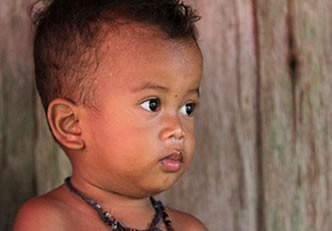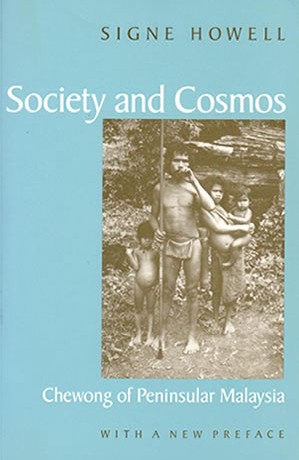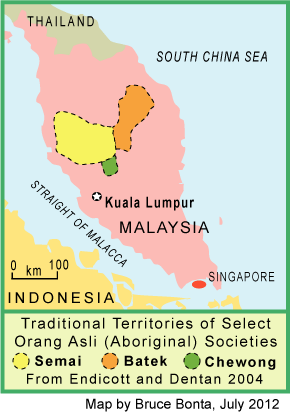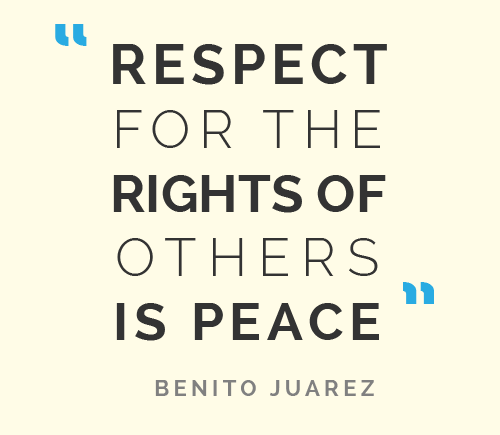Location. A small Orang Asli society (Malay for “Original People”) of about 450 people living in the heavily forested mountains of the Malay Peninsula in Southeast Asia.

Economy. Some of the Chewong live in the protected environment of a Malaysian game preserve, where they subsist on hunting, trapping, fishing, and foraging for fruits, nuts, vegetables, tubers, and mushrooms. Others live in a village open to tourists next to the Kuala Gandah Elephant Sanctuary in Pahang, Malaysia. They are also shifting cultivators, and some hold wage labor jobs. Although they are affected by the modern state that surrounds them, they still define themselves as hunters and gatherers.
Beliefs that Foster Peacefulness. The Chewong believe that society consists of superhumans—spirits—as well as people. The superhumans are part of both their ceremonial occasions and their daily lives. Human behavior, they feel, must be restrained by rules, and the superhumans can cause accidents and diseases when people violate those rules. For instance, the maro rule implies that a visitor must immediately be offered tobacco and food. The punen rule requires the Chewong to avoid desires that cannot be fulfilled, since unfulfilled desires can lead to conflict. Taladn prohibits anyone from laughing at animals or teasing them. These rules emphasize respect for humans, superhumans, and the rest of nature, all of which have a comparable life-force, ruway, which is the essence of their beings. Despite modernizing forces in Malaysia that include the Chewong, they still cherish two core values: a strong belief in equality and a passion for sharing. They also believe that all living beings share a common moral universe.
Avoiding and Resolving Conflict. They almost always withdraw from hostile situations, moving to different settlements to avoid people with whom they have bad feelings.

Gender Relations. The Chewong recognize that men are physically more adept at tasks requiring greater strength and that women have the biological task of child bearing and nursing, but they ascribe no special status to any of the distinct male or female roles. Hunting carries no more prestige or value than cooking, planting, gathering, or child-care. The married couple cooperates closely in their economic activities. While the wife may have primary responsibility for the fields, the husband frequently helps. If she is incapacitated, he will do all of her chores. Likewise, women may help with hunting and they normally fish with their husbands.
Raising Children. Children have few toys; most of their games are imitations of adult activities. When they reach about seven, the children begin a gradual shift from the constant care and protection by their parents to an adolescent life with their peers of the same sex. Adolescence is a time of active learning, though no one teaches young people anything. The society just assumes that the young men and women will learn the skills of adults by the time they are grown.
Social Practices. The Chewong view humans as being part of an environment that excludes other people but includes, as part of their moral universe, such non-humans as mountains, rivers, trees, and superhumans. Health is based on maintaining the established, peaceful social order, and disease is a result of its disruption. Healing is assisted through the cooperation of non-human spirit guides which, during seances, provide help. The Chewong particularly appreciate the help of the “leaf people,” spirit beings that live in the flowers and trees and look and dress like them. A correct knowledge of basic cosmic rules for proper social behavior helps prevent punishments by the deities. However, changes are taking place in the Chewong world due to logging and government pressures to resettle that are influencing, at least to some extent, their peacefulness.
Sense of Self. The Chewong always appear to be in control of their emotions. Their suppressed emotionality is evident at their gatherings, which are reserved except for ritual occasions when the community may be involved in singing and drumming, but even then they act in a constrained and low-key fashion. While western peoples may believe in the ideal to “know thyself,” to the Chewong the ideal is to “suppress thyself.” They feel that to be human is to be fearful, while to be brave, quarrelsome, or angry is not to be human.
Cooperation and Competition. The Chewong completely lack a sense of rivalry or competitiveness. While the tasks they perform together are few, and some people are naturally better able to do their jobs than others, no one makes a point of one individual’s greater ability. Hunters do not compete in the amount of meat they can bring in, and people do not comment on the abilities of others. Children do not have any competitiveness in their games. When they spin tops, they leave out the competition that characterizes the Malay top spinning game. They do not have races. But while the Chewong do not compete, they also don’t help one another, since they prefer not to be involved with each other’s work.

Social Control. They are normally quite restrained about expressing any emotions, except shyness and fearfulness. They have no political organization, leaders, hierarchy, social stratification, or system of authority. Group ideas of proper behavior are known by all, and someone who transgresses has to avoid the disapproval of the group, such as one old man who married too young a girl so he had to move away with her. They have no formal sanctions, punishment, or headman to pass judgment. They are required to have a spokesperson with whom the outsiders, the Malay people and government, can deal, though that position is not sought after.
Strategies for Avoiding Warfare and Violence. The Chewong language lacks words for aggression, war, crime, quarreling, fighting, or punishment. When confronted with aggressiveness or threats, they immediately flee, since flight has normally been their response to violence. One man with his extended family was accused—he claimed falsely—of stealing by a neighboring Chinese farmer, who threatened to beat him. The Chewong family immediately packed what they could, left under cover of darkness, and did not come back. Another man was threatened by a Malay soldier, so he fled with his family to a remote mountain, and after 10 years was still afraid to return. The Chewong explicitly do not believe in bravery.
But How Much Violence Do They Really Experience? The Chewong have no violence in their mythology, and cannot conceive of murder. During her nearly two years of living with them, anthropologist Signe Howell witnessed almost no quarrels or angry Chewong, except for children’s temper tantrums. During one rare quarrel, a jealous woman got angry at her husband, who was apparently innocent of her accusations of adultery—she broke his best blowpipe in half and trampled on it. This highly antisocial act upset everyone; they tried to avoid her and several families moved away because of the incident. Howell could not learn of any crime more violent than that. Even outsiders who are not part of their social universe cannot be harmed, no matter what they do to them.
Scholarly Resources in this Website:
- “‘To Be Angry Is Not To Be Human, But To Be Fearful Is”: Chewong Concepts of Human Nature” (Howell, 1989)
More Resources in this Website:
- A Chewong community has a new building designed to display village crafts for tourists.
Sources in Print: Howell 1981, 1984, 1988.
Sources on the Web: Endicott and Dentan 2004; Center for Orang Asli Concerns; Orang Asli Archive; ATFP Report: Nomad Hunter-Gatherers
Updates—News and Reviews:
Selected Recent Stories
August 21, 2014. Frog Woman and Her Moral Code [anthology chapter review]
September 5, 2013. Chewong Choices: Modern or Traditional Values [anthology chapter review]
July 26, 2012. Chewong Peacefulness Despite Social Changes [anthology chapter review]
All Stories
All stories in this website about the Chewong are listed in the News and Reviews Subject Listing
